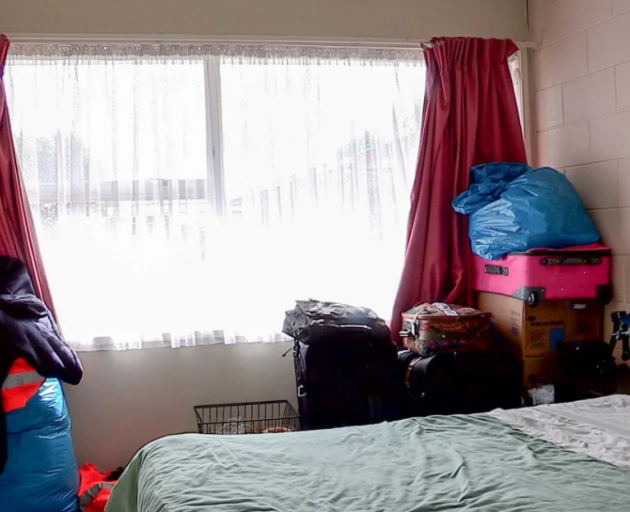
Funding for support services designed to help people out of emergency housing is due to expire in two months - and the government will not commit to extending it.
That is despite its recently announced target to reduce the number of households in emergency housing - currently about 800 - by 75 percent in the next six years.
Documents released to RNZ under the Official Information Act reveal that advice from the Ministry of Social Development (MSD) said there were "critical gaps in support for emergency housing clients" that could contribute to people needing emergency housing for longer, and returning to emergency housing after leaving.
But the support currently in place was only guaranteed until June this year.
Most of the $40 million budget goes towards "contracted navigator and support services" ($15.2 million) who help those with the most complex needs, and MSD "integrated case managers" ($13.3 million), who provide one-on-one support.
The rest includes housing brokers who connect people with potential landlords in the private rental market; "flexible funding" to help those in desperate need pay for children's education and wellbeing; case managers who administer the client's contributions to emergency housing costs; and a ready to rent programme "to equip clients with the skills to gain and sustain private rentals".
The advice to ministers said "evaluations have found that the initiatives have been successful in providing holistic support and obtaining longer-term housing for households", and that the success of the programmes had been noted by many.
A 2022 report on housing navigators and integrated case managers found there were shortfalls - while they provided support, they could not address "the underlying barriers and lack of housing supply resulting in whānau being in emergency housing".
But whānau said it was better than having no support at all.
A report from the same year on the housing broker initiative stated its efficacy more clearly.
"From over 2,500 referrals in the 2021/22 financial year, the 23 brokers successfully placed over 1,300 households in long term, sustainable, private rental accommodation across all regions, with others continuing to work with brokers, finding accommodation themselves or accessing relevant support services."
No commitment to further funding
Associate housing minister Tama Potaka - who is responsible for emergency housing - would not commit to continuing any of the initiatives.
"There is a lot of hard work behind the scenes supporting people living in emergency housing including to move out by securing private rentals, transitional housing, and public housing," he told RNZ.
"Options for services to support the government's emergency housing target are still being considered."
He would not say what those options were.
Meanwhile, MSD said future funding was "Budget sensitive".
"We will be able to provide you with more information after the Budget," housing group general manager Karen Hocking said.
Providers in the dark
An MSD-contracted provider of housing navigator services, whom RNZ has agreed not to name, said they were concerned and had no idea what lay ahead.
They had been told the funding may be reviewed, but that was all - and they did not want to comment further, because they were worried it could compromise their future contracts.
But a Taranaki-based provider, Tui Ora, told RNZ it had not heard a thing.
"Tui Ora has not been made aware of any change to current funding to MSD funded housing navigators," it said.
"We have a close relationship with our regional MSD office who will inform us if there are to be any changes in funding. In the meantime we do not wish to speculate on any potential outcomes."













